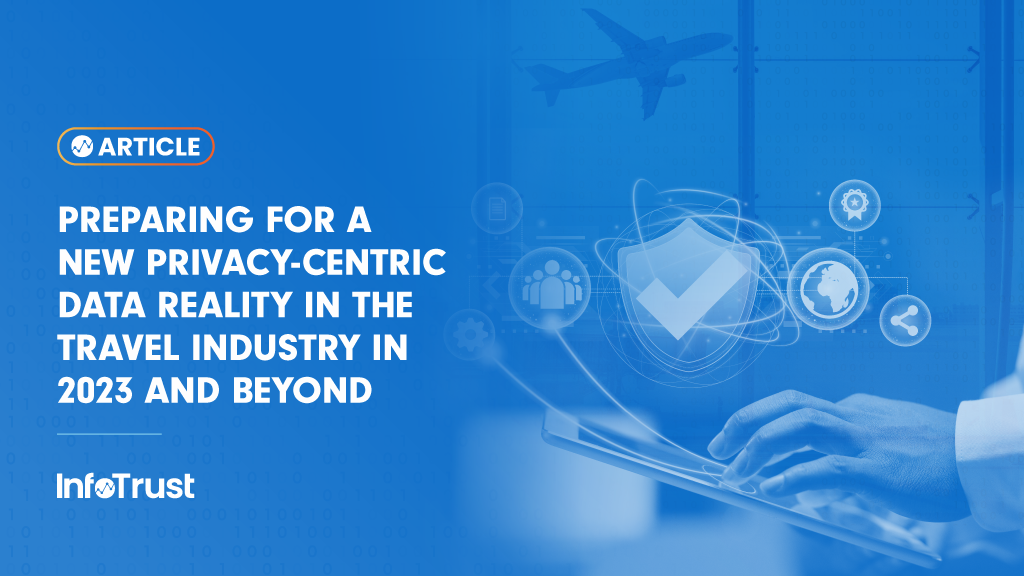Introduction
The travel industry is facing a number of challenges around user privacy as it adapts to the expansion of privacy legislation. At the same time, people are becoming increasingly aware of their own online privacy and have an ever-increasing appetite for having a say on how and when their personal data is collected. Brands need to change the way they think about data if they’re going to succeed in the future, especially with the inevitable deprecation of third-party cookies and the third-party datasets they enable.
Privacy is the defining issue of our time.
Privacy is the defining issue of our time. As we move toward a future where data is both more pervasive and valuable, it’s important for companies to understand how they can remain compliant with privacy laws while also ensuring that their customers are happy with their services.
The European General Data Protection Regulation (GDPR) and California Consumer Privacy Act (CCPA) are two examples of data regulations that businesses must adhere to in order to protect user information while still being able to use it effectively. In addition, these laws include rules concerning user consent, data collection and storage, as well as hefty penalties for violations.
The travel industry has historically relied on third-party data for targeting, but third-party data is slowly dying away.
The travel industry has traditionally relied on third-party data to target users. However, as users continue to opt out of the collection and sharing of their personal information for advertising purposes, the reliability of third-party data is becoming increasingly questionable.
This means that in 2023 and beyond, marketers in the travel industries will benefit from using first-party data instead of relying on third-party sources.
Travel companies can build trust with consumers when using their data by providing a clear privacy policy and being transparent about how their data will be used.
The travel industry is facing a number of challenges around user privacy as it adapts to the growth of privacy-centric legislation.
Privacy-centricity is a growing trend that requires companies to be more transparent about how they collect and use customer data. Regulations could make it much harder for marketers to target their customers with personalized ads, which would negatively impact revenue and lead to fewer bookings made through travel booking sites like Expedia or Booking.com.
Another challenge is third-party data sharing agreements between companies like Amazon, Facebook, and others who offer services related to travel booking (e.g., hotel searches). Today’s consumers expect an easy way of finding information about hotels or flights online; however, these same consumers don’t want their personal information shared across multiple platforms without their permission or knowledge—and many don’t even realize it’s happening!
At the same time, people are becoming increasingly aware of their own online privacy, and have an ever-increasing appetite for having a say on how and when their personal data is collected.
Consumers are demanding more control over their data and transparency from brands. They want greater accountability from brands in terms of how they use personal information, as well as respect for privacy itself.
Brands need to change the way they think about data if they’re going to succeed in the future, especially with the inevitable deprecation of third-party cookies.
There’s a reason brands are so obsessed with data. Data is the foundation of your business and marketing efforts, and it has the potential to help you find new customers, retain existing ones, and improve customer experiences.
If you haven’t noticed yet, the era of third-party targeting and marketing has come to an end. In its place is a new era where brands will be forced to do more with less—and they’ll need to change their approach when it comes to collecting data if they want their businesses (and careers) to survive in this brave new world.
Travel companies will need to create frameworks for user consent, if they haven’t already.
In 2023 and beyond, travel companies will need to create frameworks for user consent, if they haven’t already. This is because users will expect greater transparency and control over their data, and rising regulations require it.
The challenges are clear: Travel companies need to be aware of the changing landscape so they can prepare themselves. The opportunities are also clear: Travel marketers who embrace this new privacy reality will be able to differentiate themselves from competitors by providing more value through their customer relationships (CRM), which leads us back around again—to building trust!
It’s time to take action.
Get started today with a Strategic Risk Assessment, followed by implementing a lawful data process for collecting personal data.
Conclusion
In sum, the future of travel marketing is going to be shaped by increased regulation and consumer awareness. Companies will need to adapt quickly if they want to continue capturing the attention of potential travelers who increasingly want more control over how their personal data is used.


